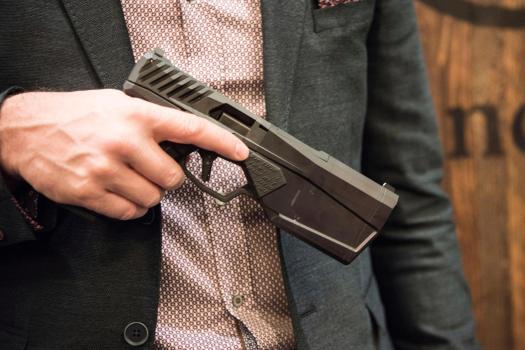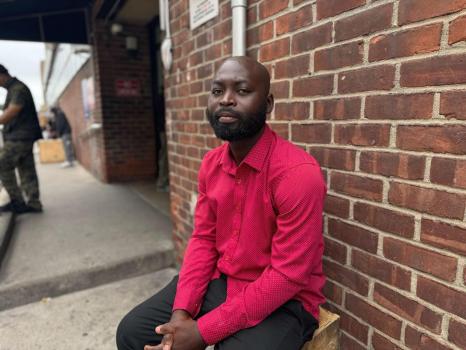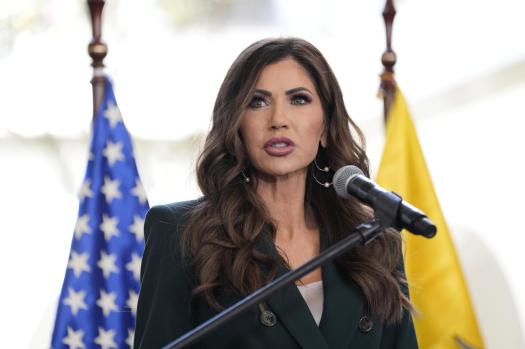Written by Kevin Freking
WASHINGTON (AP) — Republicans’ attempts to relax laws governing silencers, short-barreled rifles, and shotguns have been severely hampered by a Senate lawmaker who warned that the plan would require 60 votes to pass if it were to be incorporated into their massive tax and immigration bill.
Related Articles
-
Trump Management 101: World leaders adapt to his erratic diplomacy with flattery and patience
-
Judge rejects another Trump executive order targeting the legal community
-
Senate rejects effort to restrain Trump on Iran as GOP backs his strikes on nuclear sites
-
Congo and Rwanda sign a US-mediated peace deal aimed at ending decades of bloody conflict
-
High court ruling on injunctions could imperil many court orders blocking the Trump administration
The bill, which would effectively treat silencers and short-barreled handguns like long guns, had been the subject of intense lobbying by gun rights organizations. Gun control organizations applauded the lawmaker’s decision, claiming that the products have been prohibited for almost a century for good reason—they endanger communities and first responders.
The House version of the GOP’s bill would have abolished a $200 fee while removing silencers, known as suppressors by the gun industry, from a regulation from the 1930s that controls the most dangerous firearms. In its version of the bill, the Senate included short-barreled, or sawed-off, rifles and shotguns while maintaining the silencer clause.
A background check based on fingerprints is also required for prospective purchasers of regulated firearms under the National Firearms Act. Such checks don’t have a due date. One may argue that the procedure is more comprehensive than the name-based background check that is carried out for other firearm purchasers.
The Byrd Rule states that the budget adjustments sought in the measure cannot be merely incidental to the policy changes, and lawmakers stated the Senate parliamentarian had determined that the silencers provision violated this rule. The purpose of the special regulations is to discourage the inclusion of measures in the bill that have nothing to do with taxes or spending.
Sen. Ron Wyden, a Democrat from Oregon, stated that such a policy is not appropriate for a reconciliation package, but it is not surprising that Republicans will take advantage of any chance to appease the gun lobby by reversing gun safety regulations.
The $200 levy and the fact that background checks for silencers and short-barreled weapons can take weeks or even months were the subjects of complaints from gun rights organizations.
Prior to the decision, Larry Keane, a supporter of the legislation and spokesperson for the National Shooting Sports Foundation, stated that the proposed adjustments were intended to assist hunters and target shooters in protecting their hearing. He maintained that silencers are rarely used in violent crimes. According to Keane, its only goal is to lower firearm reports to levels that are safe for hearing.
John Commerford, executive director of the National Rifle Association’s Institute for Legislative Action, expressed disapproval of the lawmaker’s decision, pointing out that she was first chosen by Democrat Harry Reid, the Senate Majority Leader at the time.
However, Commerford stated, “We are still dedicated to collaborating with our allies on Capitol Hill to eliminate the unfair tax burden on these constitutionally protected weapons.”
Giffords, the gun violence prevention group co-founded by former Representative Gabby Giffords, who was gravely injured in a mass shooting in her district in 2011, was among the groups opposing the legislation.
According to Emma Brown, the executive director of the group, taking away the protections on gun silencers would have made it simpler for violent offenders to get away, increasing the risk to both law enforcement and civilians.
Furthermore, Brown claimed that eliminating restrictions on short-barreled firearms would have just made it easier for criminals to obtain these weapons, which are concealable and simple to carry into crowded areas.
Republicans generally supported the gun language, but it hasn’t gotten much attention as Senate Majority Leader John Thune, R-SD, and House Speaker Mike Johnson, R-LA, try to resolve party disagreements over energy tax credits and Medicaid cuts, among other concerns.
It will have significant ramifications in the years to come and is only one of hundreds of spending and policy items that were included to persuade members to support the measure.












